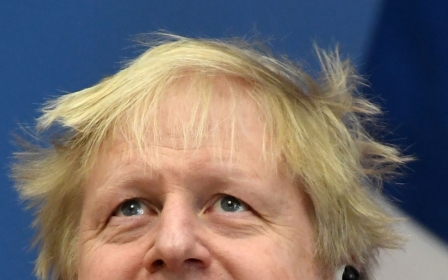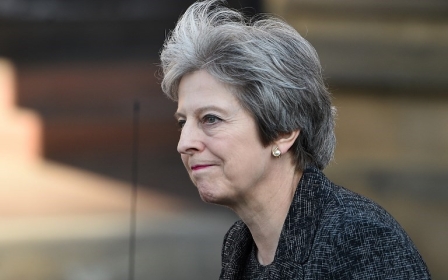Where does new UK Foreign Secretary Jeremy Hunt stand on Middle East issues?
Jeremy Hunt, a long-time cabinet minister who has been health secretary since 2012, will replace Boris Johnson as foreign secretary in the UK.
Johnson tendered his resignation on Monday in protest at Prime Minister Theresa May's approach to negotiations to exit the European Union, which has sought to preserve close relations between London and the bloc.
"The Queen has been pleased to approve the appointment of the Rt Hon Jeremy Hunt MP as Secretary of State for Foreign and Commonwealth Affairs," May's office said in a statement.
Statements by Hunt have shed light on his stance on ongoing conflicts in the Middle East. Hunt, for instance, aims to "combat" the Boycott, Divestment, and Sanctions (BDS) movement against Israel's occupation and violation of Palestinian rights, but he has also expressed mild criticism of Israeli policies.
Hunt, a close ally of May, has also voiced opposition to any sanctions against Israel for violating Palestinians' human rights.
"I am clear that the UK government is deeply committed to promoting our trade and business ties with Israel and accordingly is strongly opposed to the Boycott, Divestment and Sanctions Movement," a statement on his website reads.
Recently, he expressed "concern" over Israel's plan to demolish Palestinian villages in the West Bank, including the Bedouin encampment of Khan al-Ahmar.
"Demolitions and evictions of Palestinians from their homes cause unnecessary suffering to ordinary Palestinians, call into question Israel's commitment to a viable two-state solution; and, in all but the most exceptional cases, are contrary to International Humanitarian Law," he said in a statement.
Hunt has said he is disappointed in US President Donald Trump's decision to move the US embassy in Israel to Jerusalem
Earlier this year, Hunt criticised Syrian President Bashar al-Assad's campaign to take control of Eastern Ghouta. At the time, Hunt described Assad's siege on the former rebel enclave as "brutal" and demanded an end to the "unprecedented levels of suffering."
Critics, however, point to Hunt going on a three-day visit to Syria in 2007 courtesy of the British Syrian Society, a group headed by Fawaz al-Akhras, Assad's father-in-law.
Kristyan Benedict, Amnesty International's UK campaigns manager, noted that despite the trip being a "long time ago," there was still evidence of "mass torture" in the country.
On Yemen, Hunt released a statement earlier this year commending the UK government's humanitarian aid to the war-ravaged country. However, he did not mention weapon sales to members of the Saudi-led coalition nor civilian casualties from Saudi air strikes.
Hunt has called for monitoring the Lebanese group Hezbollah with a view to a possible ban on the group in the UK.
"Hezbollah's beliefs are outrageous, disgusting, and should be condemned at every opportunity. I deplore the group in its entirety," he said in a statement this year.
The UK banned the military wing of the group in 2008; outlawing the entire organisation is still under review.
New MEE newsletter: Jerusalem Dispatch
Sign up to get the latest insights and analysis on Israel-Palestine, alongside Turkey Unpacked and other MEE newsletters
Middle East Eye delivers independent and unrivalled coverage and analysis of the Middle East, North Africa and beyond. To learn more about republishing this content and the associated fees, please fill out this form. More about MEE can be found here.




